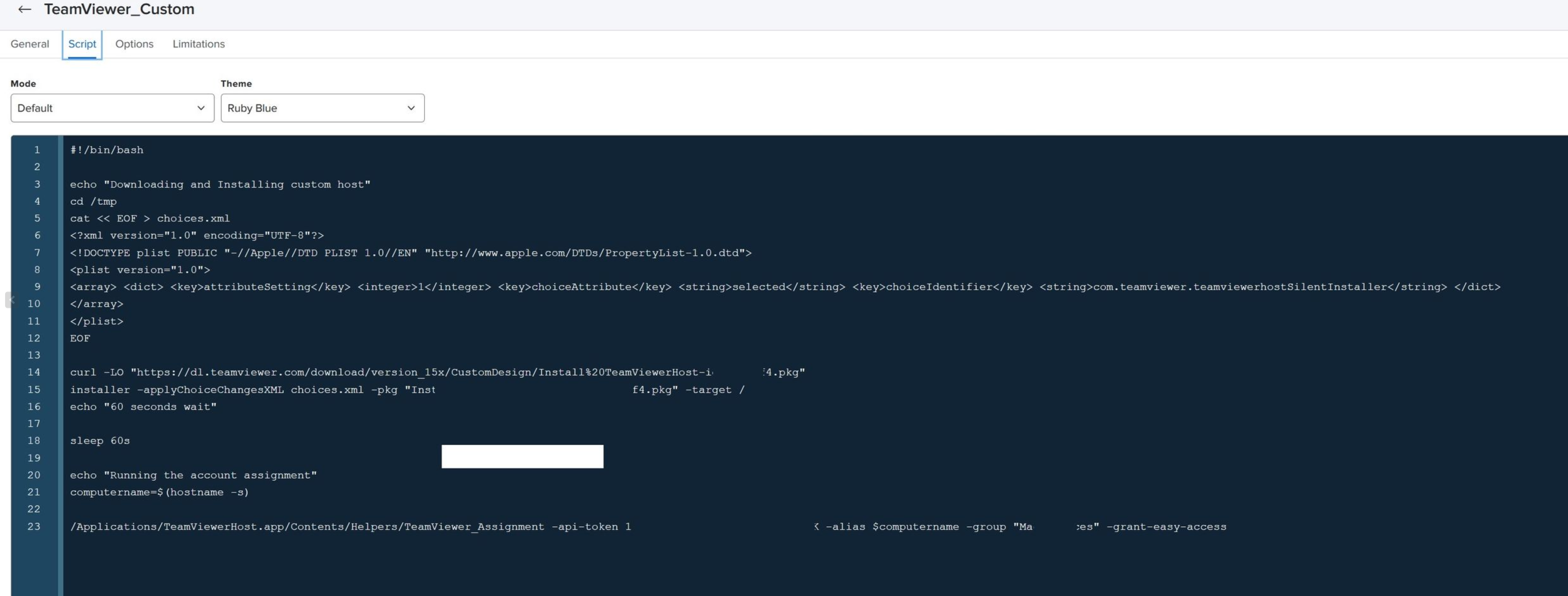Hi All,
I have a script that i use to mass deploy teamviewer host using Jamf.
The only problem with my script is that it sometimes do not do the account assignment and enrollment of teamviewer host (last lines of my script).
I was thinking maybe i can set it up so that when my teamviewer policy finish run, Jamf can call/run another script that basically kick the last lines of code/teamviewer enrollment.
Does anyone be able to guide me on how to do this? How can i call another policy/script upon finish off running a policy/script?






